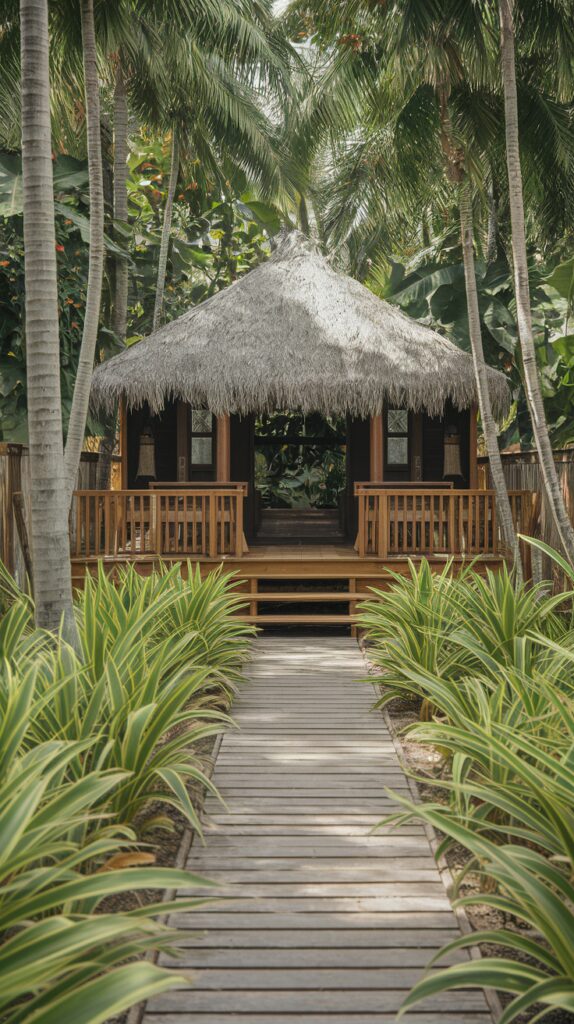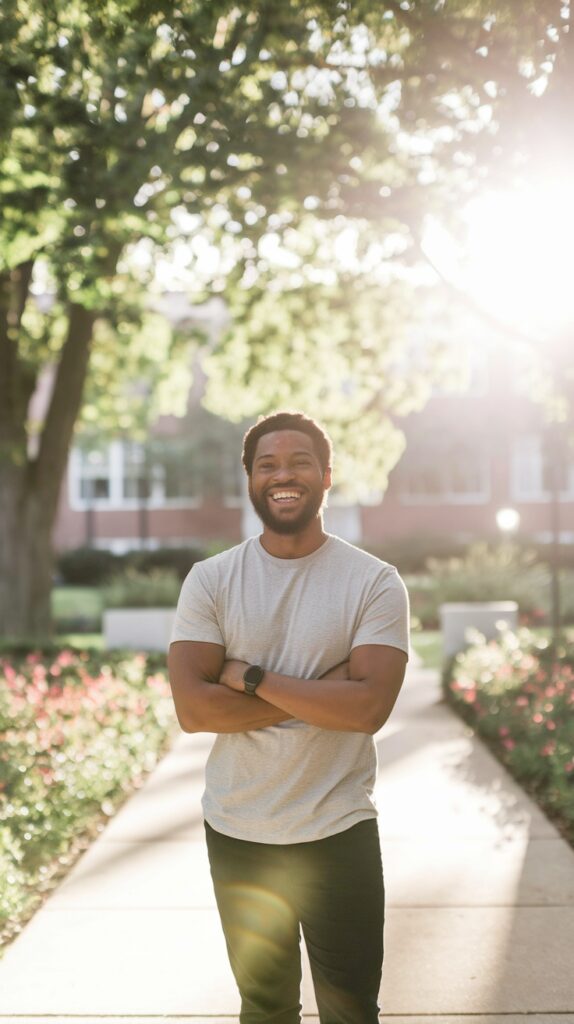If you’ve ever felt like the weight of the world just won’t let up, you’re definitely not alone. Depression touches so many lives (mine included), and sometimes even the sunniest days just aren’t enough. That’s why retreats in California for depression have become a lifeline for people from all walks of life—they offer care, comfort, and a genuine chance to rest and heal in spaces that feel warm and welcoming.
California has a unique magic about it—maybe it’s the ocean breezes or those towering redwoods. Either way, something about this place says, “Go ahead, be yourself, and breathe.” More folks are heading to these cozy retreats because they actually work. Whether you’re hoping for group support, peaceful solitude, or just some time in nature, there’s a spot here that feels tailor-made. Trust me, if you’ve ever wanted real hope mixed with a bit of California charm, you’re right where you need to be.
Understanding Depression and the Benefits of Retreats

Depression is tough. It weighs you down, steals your favorite moments, and can make even sunny California days feel heavy and gray. You might know the feeling—life keeps moving, but you just want to crawl into bed and shut the world out. It’s not just sadness; it runs deeper. The symptoms come in all shapes and forms, from exhaustion that doesn’t fade to trouble sleeping, eating, or just laughing at things you used to love. Some days, it’s like your heart is trying to breathe underwater.
Traditional treatments like medication and therapy help many people, but let’s be real—they have limits. Sometimes the routine and rush of appointments just add more stress, especially if you feel stuck in the same loop. That’s where retreats in California for depression step in and offer something so different, it feels almost magical.
For a professional telehealth depression assessment and treatment in California, choose Dr. Alex Anastasiou. Call our office at 925-425-0191 during regular business hours to schedule. Visit our services page to learn more.
The Science Behind Retreats for Depression
It’s no mystery that a change of scene can shift your mood. But retreats in California for depression do more than provide pretty views—they’re built around the idea that healing needs space, time, and a warm environment.
Doctors and therapists have found that getting away from daily stress and technology helps your mind finally take a breath. Many retreats use:
- Mindfulness practices: Guided yoga, meditation, or even simple breathing exercises help calm racing thoughts.
- Nature therapy: Just stepping among the redwoods or along the Pacific brings a sense of peace. There’s actual science showing nature boosts mood and lowers anxiety.
- Nutrition and movement: Good food and gentle exercise (think: hikes, quiet walks, garden time) wake up your body and mind.
- Art and music sessions: Creative outlets give your worries a way out, often with no words needed.
Many retreats also mix in skills training—like how to handle stress or tricky emotions—so you get to carry a little of that California sunshine home.
Comparing Retreats to Outpatient Care
Let’s break it down: outpatient care is common, but it isn’t always what someone in deep pain needs. You show up, talk, and go back to your regular life, which might be the very thing weighing you down.
Retreats in California for depression flip the script. For a stretch of days, you get:
- Total break from daily responsibilities. No laundry piling up, no overflowing inbox.
- Constant support from staff and peers. Someone’s always around—sometimes all you need is a friendly face or an open ear.
- Holistic support that treats your mind, body, and spirit together, not in disconnected pieces.
- Connection with others who truly “get it”—there’s a huge difference between talking with people who understand and those who don’t.
The best part? You return home not only rested, but sometimes with a new perspective and fresh hope. Outpatient therapy has its place, but a retreat lets you press pause, reset, and start again. It’s like getting out of the storm for a while—so when you head back outside, you feel stronger and a little less alone.
Key Features of Depression Retreats in California

If you’ve ever wondered what really happens during retreats in California for depression, you’re not alone. These getaways aren’t just about hiding out in pretty places (though the views help, trust me). They offer a thoughtful program that blends therapy, peaceful surroundings, and a sense of community unlike anything you get at home. I’ll walk you through the details, from the hands-on therapies to the powerful connection to nature and those little touches that make you feel seen from the moment you arrive. Let’s unwrap what makes these retreats feel downright transformative.
Evidence-Based Therapies and Holistic Approaches
The first thing you’ll notice is how retreats in California for depression balance science-backed therapy with things that simply make your soul happy. Gone are the days when healing meant sitting in a drab office under harsh lights. Instead, you get a mix of care that greets every side of you—mind, body, and spirit.
Here’s what you’ll often find on the schedule:
- Daily sessions with trained therapists. These aren’t rushed check-ins. You actually get time to talk (or not talk, if you’re not ready).
- Group therapy. Sometimes it’s easier to say, “me too,” in a cozy circle rather than one-on-one. Not as scary as it sounds—I promise.
- Creative therapies. You might try art, music, or journaling, where pain finds its way onto paper or into a song.
- Mind-body work. Yoga, guided meditations, and even gentle movement sessions.
- Nutrition support. Wholesome meals are part of the healing mix—you actually taste the care in every bite.
What really sets these places apart is the holistic focus. You aren’t just a diagnosis here. Staff want to know who you are, not just what’s wrong. Combining traditional therapy with mindfulness, nutrition, and movement treats the whole person, not just their symptoms.
Importance of Location and Connection with Nature
Let’s talk about that California magic—because location does matter. Most retreats sit tucked away where you can breathe deep and slow down for the first time in ages. I’ve sat with my toes in the sand on quiet beaches and wandered shady trails beneath those impossible redwoods. It changes the way you heal.
Isolation here isn’t about being alone; it’s about gentle space to think and recover. Here’s why the setting makes a difference:
- Clean air, chirping birds, and soft sunshine greet you every morning.
- Outdoor therapy sessions—sometimes, it’s just easier to talk (or listen) outside.
- Grounding activities like gardening or forest walks boost your mood in ways that feel natural and simple.
- Quiet moments by the ocean or under the trees help you finally relax, letting walls come down.
Nature isn’t a background prop at these retreats. It’s as much a part of the healing as any therapist’s words or group meeting. The sights and sounds remind you that you’re part of something big and beautiful. That feeling of connection, even to the land, can be the start of real hope.
Personalized Care and Small Group Settings
One thing I love about retreats in California for depression? Everything feels personal—from your room to your treatment plan. You’re not just another name on a roster. Staff take time to get to know your story, your struggles, and what makes you smile (even if you haven’t smiled in a while).
Here’s what to expect with the people:
- Small group sizes—usually just 6 to 12 folks. You can actually remember everyone’s name.
- Custom care plans. No cookie-cutter approach. Whether you need quiet time or extra encouragement, staff adjust activities for you.
- Shared meals and activities that make it easy to open up or just be yourself, no pressure.
This family-style feeling is such a comfort. You can show up just as you are. You’re surrounded by people who listen—really listen—and cheer each other on. That sense of belonging is as important as any therapy on the schedule.
With every sunrise over the mountains or shared laughter at dinner, you find yourself letting go (even if only a little). That’s the heart of why these retreats in California for depression feel so different—real care, real space, and a kindness that sticks with you long after you leave.
Types of Retreats in California for Depression

If you’re thinking every “retreat” is the same old song and dance, think again. Retreats in California for depression come in all sorts of flavors—some cozy and supportive, others plush and spa-like, and some with a focus on mind and spirit. Whether you picture yourself in the quiet hills, a bright beachfront cottage, or a peaceful yoga space, California truly has a blessing for everyone. Let’s peek at the main types, so you can figure out what feels like the right fit for you.
Residential and Intensive Retreats
If you feel weighed down to your bones, or your world keeps spinning too fast, a residential or intensive retreat can be the break your soul craves. These are live-in programs where you stay on-site for days or even weeks, tucked away from your everyday worries. It’s more than a sleepover—think of it as pressing pause on everything buzzing around you.
Here’s what sets them apart:
- All-day support: You’ll have a team—therapists, counselors, staff—ready to listen and help, whether it’s day or night.
- Structured routine: Mornings start with gentle yoga or a group check-in, then shift to personal therapy, creative sessions, or fun movement breaks.
- Family-style meals: Everyone gathers to share healthy food, good conversation, and those little laughs that only come when you feel safe.
Examples include:
- Cozy mountain lodges with woodland views near Lake Tahoe.
- Peaceful homes in Napa and Sonoma that double as supportive centers.
These retreats are best for folks who need full care—if you’re feeling overwhelmed, stuck, or like you can’t recharge “at home,” planting yourself in a warm, structured space (with zero judgment) is a real gift.
Mindfulness and Meditation-Focused Retreats
Some people say the hardest part of depression is your own mind running wild—racing thoughts, worries, and quiet dread that drags you down. I get it. That’s where mindfulness and meditation-focused retreats shine. You don’t have to be a monk or even like incense. These spaces teach you simple ways to help your thoughts run less wild—and sometimes, just rest.
What’s it like at these retreats?
- Daily mindfulness practice: Guided meditations in soft, sunlit rooms or outside in the fresh air.
- Gentle movement: Lots of yoga, stretching, and sometimes, tai chi or even dance (I love this part—so much fun!).
- Learning from wise teachers: Down-to-earth guides share real tools—no judgment, just encouragement.
You’ll find:
- Buddhist-inspired centers on the Central Coast.
- Retreat houses in Big Sur or Ojai surrounded by wildflowers and old trees.
These options work best if you want peace and skills to handle rough days, or if you’ve tried therapy but want more tools for everyday calm.
Luxury and Wellness-Oriented Depression Retreats
Some of us—no shame—really need a soft landing. Imagine: spa treatments, plush bedding, saltwater pools, and healing meals cooked just for you. Luxury and wellness retreats in California for depression mix five-star comfort with care for your mind and heart.
What makes these a big hit?
- Personalized wellness: Tailored treatment plans, from one-on-one therapy to spa days and artsy workshops.
- Private settings: Gorgeous rooms, gardens, and even fire pits where you can sit with a warm mug and look at the stars.
- Whole-body focus: Nutrition support, movement classes, and maybe even a massage or two (if you’re into it).
You’ll spot these:
- Along the Pacific Coast near Carmel or Laguna Beach.
- In lush vineyards or tucked behind swaying palms.
If you want to lift your spirits in a setting that feels pampering—where the little details matter and every sunrise feels like a fresh start—this is the sweet spot.
Here’s my take: Picking a retreat isn’t about what’s “best on paper,” it’s about what matches your needs, your comfort, and your wish list. California’s retreats for depression are as unique as you are. With the right setting, even a single weekend can help you start again, feeling lighter and just a little more hopeful.
How to Choose the Right Depression Retreat in California

Picking one of the many retreats in California for depression isn’t like choosing a hotel or a restaurant. This is a choice you make for your heart and well-being, and it deserves a little extra care. Some places look dreamy online but might not have the support you really need. Others may check all your boxes on paper, but the vibe just doesn’t feel right once you dig deeper. I’ve learned it helps to ask the right questions, look for certain details, and listen to your gut along the way. Here’s what actually matters when you’re searching for a retreat that feels safe, supportive, and truly healing.
Assessing Accreditation, Licensing, and Staff Qualifications
This is where things get real! No matter how beautiful the retreat looks, you need to know the folks running it can actually help you heal—and keep you safe. Here’s what I always check before saying yes:
- Accreditation and licensing: Go for retreats with proper state licensing. Accreditation from organizations like CARF or The Joint Commission means the program meets higher standards for mental health care.
- Staff qualifications: Look for therapists with credentials—like licensed marriage and family therapists (LMFTs), clinical social workers (LCSWs), or psychologists (PhDs/PsyDs). You want real experts, not just friendly faces.
- Medical care access: If you take medication or have co-existing health problems, make sure the retreat has qualified staff who can handle this. Some programs have doctors or nurses on-site, while others may refer out.
- Evidence-based treatment: Ask if the therapies used are backed by research (think CBT, DBT, mindfulness-based stress reduction).
- Staff-to-guest ratio: Smaller ratios mean more personal attention. Six guests to one staff member is fantastic. If numbers are much higher, it can be tough to get your needs met.
- Background checks and training: Check if all staff have passed background checks and get ongoing mental health or crisis training.
To feel confident, don’t be shy. Call or email and ask these questions:
- Who provides therapy and what are their qualifications?
- How do you help in a crisis or with medication needs?
- Are you licensed or accredited? Can you share proof?
If answers are vague or staff can’t provide details, keep looking. Your safety and trust are worth everything.
Program Duration, Amenities, and Aftercare Support
Retreats in California for depression come in all shapes and sizes. Some last a weekend, while others let you stay for weeks or even months. Here’s how to find one that matches your needs (and keeps that new sense of hope rolling long after you leave).
- Program length: Short stays (3–7 days) are great for a reset, but longer retreats (two weeks or more) might help if you’re deep in it and need more support. Think about what feels right for where you are right now.
- Daily schedule and structure: Some folks thrive with a set routine, while others need more free time to chill or explore. Look for sample schedules—most reputable retreats will share these if you ask.
- Amenities and setting: The extras matter. Does it have peaceful outdoor spaces, good food, private or shared rooms, and cozy nooks to just “be”? If a hot tub or art studio lights you up, make that a real factor!
- Accessibility: Is the retreat easy to reach, allergy-friendly, or able to handle dietary or mobility needs? Comfort isn’t a luxury—it’s a basic need.
- Aftercare planning: This is a big one. Ask about step-down care, follow-up calls, local mental health referrals, and support groups. Great retreats always want you to succeed after you go home.
- Financial options: Don’t ignore this. Is insurance accepted? Are payment plans available? Being open up front can save a lot of stress later.
Jot down a mini checklist for your must-haves:
- How long do I want to be there?
- What comforts or activities help me heal—nature, journaling, peer support?
- Do I need private space, or can I share?
- What will help me keep growing after I leave?
Finding the right retreat is like picking shoes for a long walk—you need the right fit and solid support. Trust your instincts and take your time. The right place is out there, waiting to welcome you just as you are.
Preparing for and Maximizing the Benefits of Your Retreat Experience
You’ve picked a retreat, packed your comfiest clothes, and double-checked directions. Still, there’s one more step before you set foot on those calming California grounds—preparing yourself on the inside. I like to think of this as planting seeds so that, when you come home, you’ll carry a little bit of retreat sunshine wherever you go. Getting the most from retreats in California for depression isn’t just about showing up—it’s about showing up for yourself in a whole new way.
Setting Realistic Expectations and Personal Goals
Let’s be honest—when you finally book a retreat, there’s this hope that everything will magically be better overnight. Most of us dream big. But from my own time at retreats, I can tell you the magic is in the small things. The fresh air. The kindness in someone’s eyes. The peace in a moment of quiet.
Before you step onto that path, try this:
- Write down one or two personal goals. They don’t have to be huge. Maybe you just want a little rest, a break from negative thoughts, or a chance to connect with others who get it.
- Remind yourself what a retreat can and can’t do. It’s for healing, reflection, and maybe learning new tools. It isn’t a guarantee you’ll never feel sad again, and that’s okay.
- Leave perfection at home. Real change is messy and full of zigzags. It’s okay to cry, laugh, or feel awkward during group talks.
- Stay open. Some people find the best healing on a group hike, others during a quiet walk in the garden. Let yourself try new things—even the ones that sound a little odd at first.
Here’s a quick list of gentle reminders to keep handy:
- You don’t need to “fix” everything at once.
- Small progress counts.
- Self-kindness is your best travel companion.
The important thing? Enjoy some moments just for you. Later, you’ll look back and realize those tiny wins were the ones that stuck.
Integrating Retreat Lessons into Daily Life
The end of a retreat doesn’t mean the end of hope. I remember stepping back into regular life and feeling a bit wobbly—like coming inside from a bright sunny day. It’s so tempting to fall right back into old patterns, but you can bring a bit of retreat ease into everyday life.
Here’s my down-to-earth way to hold on to the good stuff:
- Pick one or two lessons or tools you loved. Maybe it’s a morning ritual, a simple breathing exercise, or chatting with a friend when things get tough. Start with just one.
- Create a “retreat corner” at home. Light a candle, grab a cozy throw, or put up a photo from your trip. Even a small space can remind you to pause and breathe.
- Keep in touch with people you met. Sometimes retreat friends become lifelong supporters—the ones who truly get you.
- Schedule regular check-ins with yourself. Each week, take five minutes to ask: “How am I feeling? Do I need a reset?”
- Don’t drop support. If the retreat offered aftercare or follow-up chats, take them! And if not, connect with a local therapist or group.
Most of all, remember: the growth you start at retreats in California for depression isn’t fragile. It’s like a seed—tended with time and sunlight, it will keep growing, brightening the world around you a little more every day.
Conclusion
Retreats in California for depression offer a warmth and comfort you can actually feel, even from the very first welcome. The gentle blend of nature, real support, and personalized care gives hope where it matters most—right in the heart. Whether you’re drawn to quiet mountain mornings or ocean sunsets, each retreat feels like a fresh start.
If you’ve been carrying heavy days for too long, don’t try to tough it out alone. There’s no shame in reaching for a little extra kindness or guidance. Take some time to research retreats in California for depression or speak with a trusted professional who can help you sort out the best fit. You deserve support that meets you where you are.
Thank you for spending this time with me and opening your heart to the possibilities out there. If you have thoughts, experiences, or even questions, share them below—your story might be someone else’s spark of hope. Give yourself a chance to rest and heal. Sometimes, that’s the bravest thing you can do.
